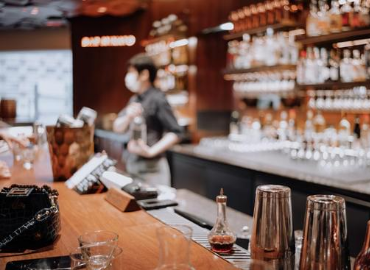Why is ServSafe important?
We must follow some directions in this corona virus pandemic, such as social distance, nutritious diets, frequent handwashing, and, most importantly, staying at home. To combat the corona virus, we need a strong immune system, and strengthening our immune system is as simple as eating healthy meals and staying at home.
The healthy foods in terms of food safety for example fresh, well prepared and clean food.
For food safety we have some certifications ServSafe is one of them.
We have a number of food safety certifications, including ServSafe.
Let’s begin at the beginning: what is food safety?
Food safety is a scientific subject that explains “how to handle, prepare, and store food in a way that prevents food-borne illness.”
How can food safety be determined? We should have some knowledge of factors that can explain if food is safe or not for this purpose.
ServSafe is a food and beverage safety tr Fresh, well-prepared, and clean foods are examples of healthy foods in terms of food safety training and certification program run by the United States Department of Agriculture and Restaurant Association of America.
Most restaurants require this authorization as a fundamental qualification for their management team.
What is the significance of ServSafe? According to the Centers for Disease Control and Prevention, 47.8 million Americans became sick from food in 2016. That’s nearly 1 in every 6 Americans, which is a staggering figure.
Basic food safety knowledge and procedures can help to reduce these infections. Managers and food handlers are both educated as part of the ServSafe program.
Importance of food safety.
Good personal hygiene.
Time and temperature control.
Preventing cross contamination.
Safe food preparation.
Receiving and storing food.
Methods like cooking, cooling and reheating.
Hazard analysis and critical control points.
Food safety regulations.
ServSafe is a food safety training program and certification exam developed by food service professionals to educate and assess food workers. Online or in-person classes are available.
The ServSafe training course covers safe food handling, receiving food and correct food storage standards, foodborne parasite prevention, and food allergen awareness.
The training curriculum also includes information on the risks associated with serving food.
There are five different certifications available:
ServSafe food protection manager.
ServSafe food handler.
ServSafe alcohol.
ServSafe allergens.
ServSafe workplace.
As a nationally recognized food safety training program, ServSafe certifications are accepted in all fifty states.
Now let’s look at the current global condition. We are facing an unseen enemy in this corona virus pandemic. We will not be able to resolve the food safety issues.
We should take certain efforts to support our country while running our businesses and maintaining our jobs. The corona virus has already put a strain on our hospitals.
As a result, we must make an effort to avoid overburdening our healthcare system with individuals suffering from foodborne illness and food poisoning.
To deal with this, we need to be aware of food safety aspects and understand food safety measures. Finally, I'd want to say, "Eat healthy, live healthy."









Comments
Leave A Reply